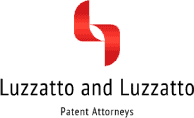


As far as clinical research is concerned, no less than a thousand papers on pharmaceutical drugs are authored every year in Israel. The highly developed infrastructure in hospitals, the heterogeneous population, the access to information and partnerships continue to draw pharmaceutical drug companies to Israel. Clinical research brings in about $350 million each year, and in the past decade alone, 1,300 new drugs have been approved in Israel.
Israel continues to attract large companies and enjoy a reputation as an innovator in the field, but complacency is the enemy of this vital industry. Eastern Europe and Asia are increasing their clinical research by 5-10% annually, while countries once considered leaders in the field are fighting to retain their standing. To ensure Israel's advantage, we must eliminate bureaucratic barriers that hinder clinical research. While the world moves forward, Israel seems to be marching in place. With no imminent changes visible on the horizon, we may soon see companies taking their clinical research to Eastern Europe and the Far East.
Depletion of Israel's Comparative Advantage in Biotechnology
Israel enjoys a significant comparative advantage in biotechnology, a field which relies heavily on the strength of its human capital. Israel is third among OECD nations in percentage of university graduates, and 47% of the relevant age group (25 to 64) in Israel hold a university degree, compared to an average of 33% in all OECD countries. A considerable number of these graduates have degrees relevant to biotechnology: about 40% of Ph.Ds in Israel are in the life sciences, compared with an average 24% in OECD countries.
Unlike computer and information technologies, where demand seems to exceed the supply of skilled workers, biotechnology has a large reserve of skilled university-educated human capital: M.A. and Ph.D. graduates in relevant fields (biology, chemistry, biochemistry, engineering, agriculture) number about 15,000 over the past ten years. Conversely, the number of those employed in biotechnology in Israel is relatively low—only about 6,500. These numbers point to the vast potential for the development and expansion of the biotechnology in Israel as a whole.
Israel also boasts a competitive edge when it comes to academic excellence which has a direct impact on the quality of academic research. Relative to its size, Israel leads the world in the number of papers published in the life sciences; likewise, Israeli universities also feature prominently in world rankings in the field.
Israel's comparative advantage in biotechnology is not limited to the academic world; the impressive number of biotechnology research companies in the country also serves as a testament to quality of Israeli innovation. There are currently about 260 biotechnology companies in Israel, of which 220 are Israeli and 40 are foreign. These numbers place Israel fifth among OECD nations in the number of biotech companies relative to product.
By comparison, in the U.S., with an economy 60 times the size of Israel's in terms of product, there are only nine times as many companies (approximately 2,000) focusing on biotechnology. Furthermore, there are another 4,000 companies in the U.S. operating in fields that encompass some aspect of biotechnology.
Indicators for Israel's Comparative Advantage in Biotechnology
| Israel's Ranking in the OECD | U.S. | Israel | |
|---|---|---|---|
| Competitiveness | 9 | 1.6 | 1.5 |
| Business investment in biotechnology as a percentage of product | 5 | 0.16% | 0.15% |
| Total number of patents per billions dollars of GDP | 2 | 246 | 538 |
| Number of new patents annually | 12 | 4132 | 141 |
| Number of biotechnology companies per billions dollars of GDP | 5 | 0.4 | 1.0 |
| Total number of companies engaged in biotechnology | 10 | 2178 | 259 |
* Source: OECD, processed by international auditing firm BDO.
**Index of Israel's proportionate share in patents (PCT) in biotechnology relative to its share in all patents.
***2013.3/PCT 2012
The extent of the Israeli business sector's investment in biotechnology R&D is among the world's highest—approaching $400 million, and Israel is fifth in the world in terms of that investment relative to product.
The combination of well-groomed human capital, the relatively large number of companies involved in biotech development, and substantial investment in R&D is a fruitful one, reflected in the numbers of biotechnology patents origination in Israeli companies. According to the OECD's patent index, which measures biotechnology patent numbers relative to all patents produced by a given country, Israel finishes ninth out of the OECD's 33 contracting states. Israel's comparative advantage is measured at 1.5 in biotechnology, placing it just behind the U.S.'s average of 1.6. In absolute numbers, Israel is second among OECD countries in the number of biotechnology patents per dollar of product, after Denmark.
Medical Instrumentation
The field of medical instrumentation is showing steady growth. The Export Authority recently published 2014 data which reveal that exports of medical instruments increased by 11% compared to 2013 and amounted to approximately two billion dollars. Of the 1,000 companies or so that operate in the life sciences industry in Israel, 70% focus on medical instrumentation.
Biotech Cluster in Jerusalem
Jerusalem usually appears in public discourse in the context of political and religious disputes. This dialogue is laden with emotion and tends to obscure the fact that the city is also a metropolis of economics and employment. After all, Jerusalem is the largest city in Israel and has several important economic-occupational anchors that attract both job seekers and investors. The life sciences are one of the city's most prominent industries which serve as an important engine for the city's economic growth.
Today, Jerusalem has a number of significant advantages in the life sciences. The city has several institutes of higher education, medical centers, and compounds that are very active in biomedical research and development. First and foremost is the Hebrew University of Jerusalem, a leader in biotechnology in Israel and responsible for some 43% of research in the field; Hadassah Medical Center – University Hospital, and Shaare Zedek Medical Center, two of the country's renowned medical centers are also based in Jerusalem. In addition, the capital boasts three technology-oriented colleges: the Jerusalem College of Engineering (JCE), the Jerusalem College of Technology (JCT) – Lev Academic Center, and Hadassah College. All this comes into play in at the Jerusalem Biotechnology Park (JBP) which is currently enjoying a renaissance of sorts. The triumvirate of universities, hospitals, and industry converge to position Jerusalem as the country's biotechnology leader.
Summary
While the life sciences industry in Israel is forging ahead, there is still work to be done on this front. Although we have been successful in making ourselves an attractive center for innovation based on scientific excellence and entrepreneurial spirit, there is still a long road ahead before becoming a mature and sustainable industry.
The scientific breakthroughs in biotechnology largely occur in the academic world. For these discoveries to mature into products, we must close the gaps between the scientific discovery stage and the product development stage. In most cases, the biotech industry can develop scientific inventions only as far as preliminary development of the product, after which, and especially where drugs are concerned, it must rely on the global pharma industry for continued development and commercialization. Israel is inexperienced in the development and commercialization of drugs and is unable to should the costly development processes totaling hundreds of millions of dollars without external aid. With the exception of Teva, there is not a single Israel drug company capable of bringing products from preliminary development stages to market. As a result, the bulk of the profit derived from the final product does not remain in Israel, even though local brainpower is responsible for the initial discovery that led to the new product.
Creating a mature and sustainable industry in Israel demands massive support from the State, Israeli and international finance groups, and joint ventures with multinational pharma companies. This is the only way to create local infrastructure, the environment and the climate for the growth of other companies that can build on the potential of the life sciences industry, significant revenues for the Israeli economy, and opportunities for continued development in the field.

Relevant Articles
Regarding Patent Term Extensions in Israel
